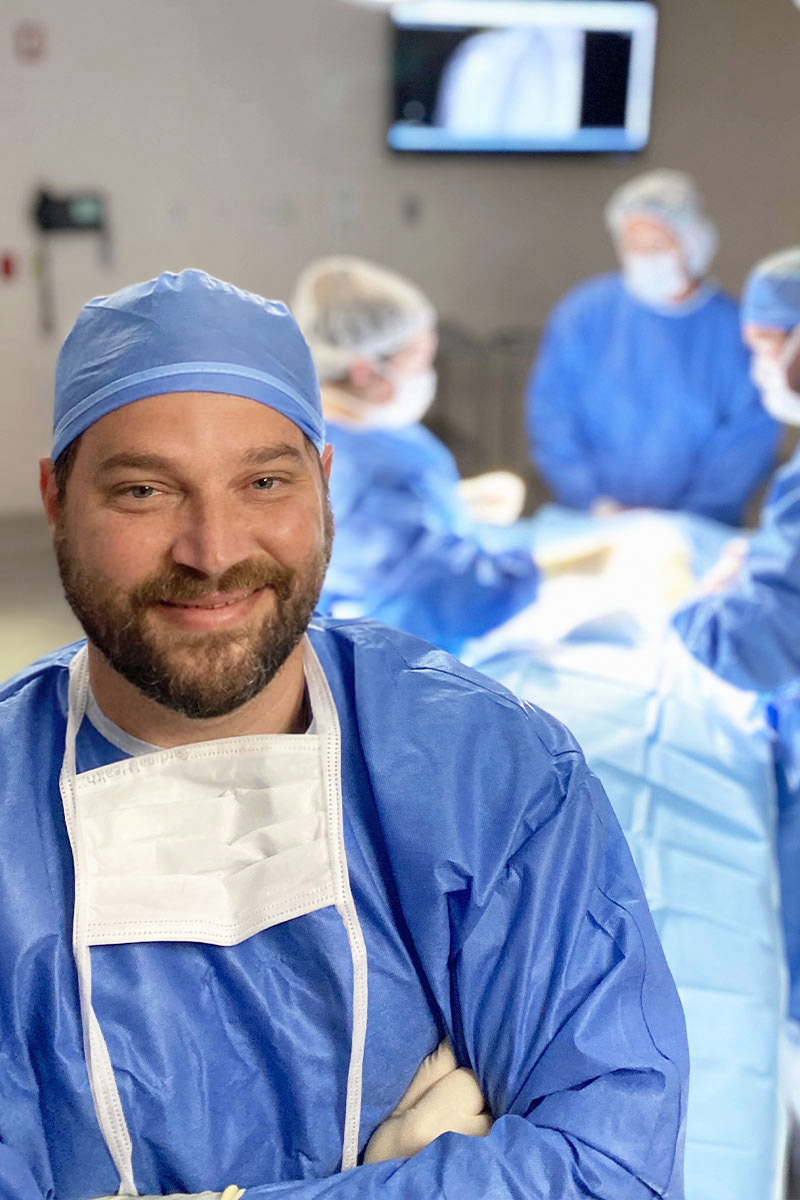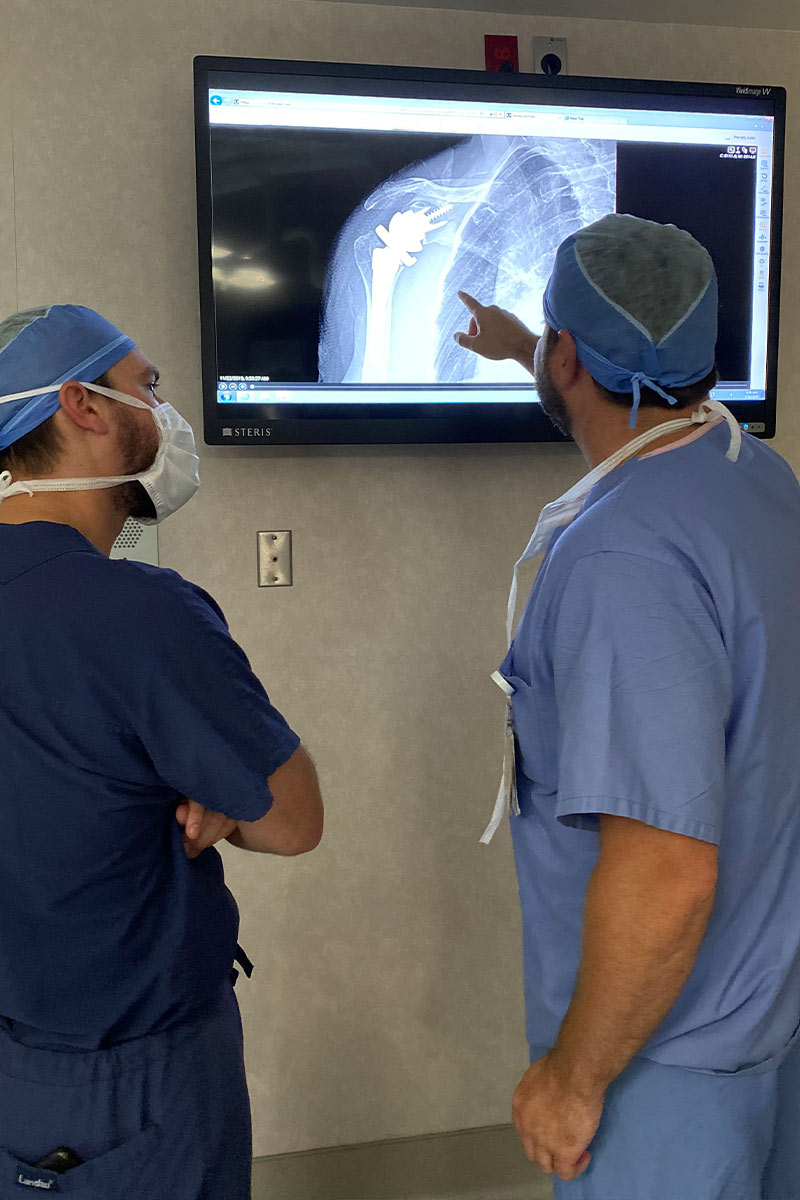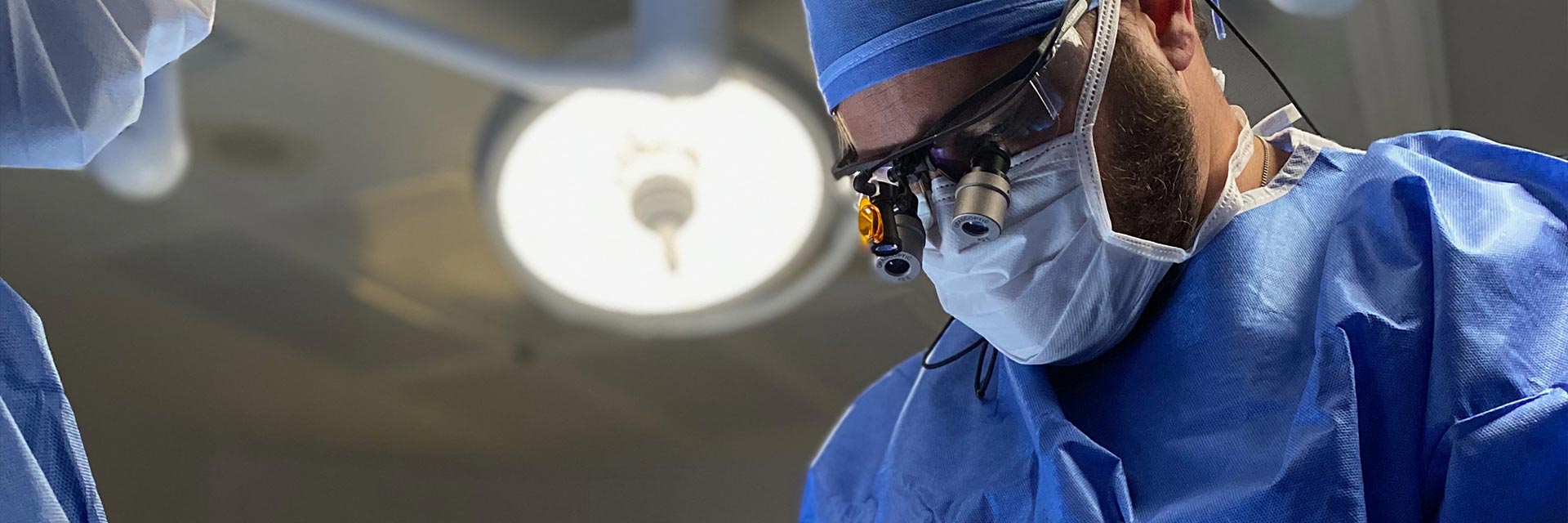Tulsa Shoulder Joint Replacement
I help patients find relief from severe or degenerative shoulder conditions by performing innovative shoulder replacement procedures tailored to the needs of the patient.Tulsa’s Foremost Shoulder Replacement Surgeon
Chris Treat, D.O., is a fellowship-trained orthopedic surgeon specializing in many different types of shoulder replacement surgery to treat severe and degenerative shoulder conditions.
After finishing an orthopedic residency at Largo Medical Center in Largo, FL, Dr. Treat completed a shoulder and elbow fellowship under renowned shoulder surgeon Dr. Reuben Gobezie at Cleveland Shoulder Institute.
Under the tutelage of Dr. Gobezie, Dr. Treat fine-tuned his surgical techniques in arthroscopic and open shoulder joint replacement surgery.
Dr. Treat’s expertise includes minimally-invasive total shoulder replacement, reverse total shoulder replacement, biologic total shoulder resurfacing, and revision shoulder arthroplasty.
Dr. Treat’s Approach to Shoulder Joint Replacement
Regardless of the condition or situation, my number one priority is to provide all my patients with the same level of care and consideration I would give to my own family.
Non-surgical treatment is always the ideal scenario, but if your condition does require surgery, I believe in tailoring my treatment approach to your needs and lifestyle.
My goal is to completely treat your shoulder condition using the least invasive surgical approach possible.
Are You Ready for Relief from Shoulder Pain?
Schedule an Appointment
– Accepting New Patients –
What is Shoulder Joint Replacement?
Shoulder joint replacement, or shoulder arthroplasty, is one of the most common joint replacement procedures performed by orthopedic surgeons.
While different surgical techniques are used to treat different conditions, shoulder replacement surgery involves replacing all or part of the glenohumeral joint with a prosthetic implant.
Most shoulder replacements are the result of cartilage degeneration, pain, and restricted joint movement caused by arthritis. However, severe wear and tear or trauma to the shoulder joint may require shoulder replacement to restore comfort, function, and quality of life.
Shoulder Replacement Causes & Conditions
Shoulder pain and loss of function can be caused by several conditions that lead patients to consider shoulder joint replacement surgery.
- Osteoarthritis (degenerative joint disease)
- Rheumatoid Arthritis
- Post-traumatic Arthritis
- Rotator Cuff Tear Arthropathy
- Avascular Necrosis (Osteonecrosis)
- Severe Fractures
- Failed Previous Shoulder Replacement Surgery
Is Shoulder Replacement Right for You?
Shoulder replacement surgery should be a collaborative decision between you, your physician, and your family. It may be right for you if:
- Severe shoulder pain interferes with everyday activities.
- Moderate to severe pain prevents you from resting or getting a good night’s sleep.
- You experience loss of motion and/or weakness in the shoulder.
- Your condition does not improve with other treatments such as anti-inflammatory medications, cortisone injections, or physical therapy.
Shoulder Joint Replacement Options
Shoulder joint replacement surgeries are extremely technical procedures. Finding an experienced, well-trained surgeon that does not take a one-surgery-fits-all approach will give you the best chance for a positive outcome and restored quality of life.
For his first fellowship, Dr. Treat trained under one of the country’s most recognized shoulder surgeons, Dr. Reuben Gobezie of Cleveland Shoulder Institute. This advanced training gave Dr. Treat the opportunity to develop his innovative shoulder replacement techniques.
Dr. Treat focuses on minimally-invasive shoulder joint replacement options that typically result in shorter surgeries, quicker recovery times, and better functionality.
Revision Shoulder Arthroplasty
- In cases where shoulder joint replacement does not produce the intended results, it may be necessary to replace the prosthetic joint with new materials. In some cases, a different, more innovative surgical approach may yield better results.
Minimally-Invasive Total Shoulder Replacement
- Patients with bone-on-bone osteoarthritis and intact rotator cuff tendons are good candidates for conventional total shoulder replacement surgery. In this procedure, the joint surfaces are replaced with a smooth metal ball on the head of the upper arm bone (humerus), and a plastic cup in the shoulder socket (glenoid).
Reverse Total Shoulder Replacement
- A reverse shoulder replacement switches the orientation of the shoulder’s “ball and socket” joint by attaching a metal ball to the glenoid and a socket to the humeral head. This approach works better for patients with rotator cuff tears because it allows the deltoid muscle to move the upper arm instead of the damaged rotator cuff.
Arthroscopic Biologic Shoulder Resurfacing
- Biologic shoulder resurfacing is an innovative arthroscopic procedure that may be performed as an alternative to total shoulder replacement. Instead of cutting through the rotator cuff to implant metal and plastic devices, this arthroscopic procedure goes between the rotator cuff muscles to replace worn cartilage with healthy biological material from a cadaver donor.
Shoulder Replacement Evaluation
Your family physician or emergency care provider may refer you to an orthopedic specialist to be evaluated for shoulder replacement surgery. A thorough evaluation may consist of several components.
Medical History
- An orthopedic physician will start with information about your health and discuss the extent of your shoulder pain and how it affects your ability to function.
Physical Examination
- Through a physical exam, your surgeon will assess your shoulder’s strength, stability, and range of motion.
X-Rays
- X-rays help determine the extent of damage in your shoulder. They can reveal loss of joint space between bones, flattening or irregularity in the shape of the bone, bone spurs, and loose pieces of cartilage or bone that may be floating inside the joint.
Additional Testing
- Occasionally, blood tests and other imaging tests, like an MRI or a bone scan, may be necessary to determine the condition of the bone and soft tissues of your shoulder.
Ready for Shoulder Relief?
Dr. Treat will Treat You Like Family
Schedule an Appointment
– Accepting New Patients –




